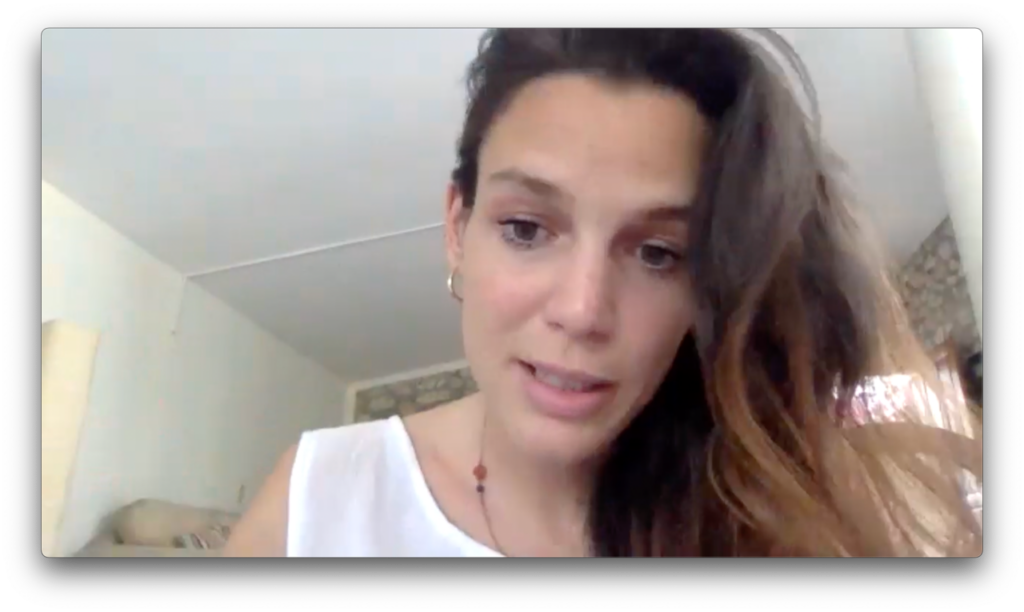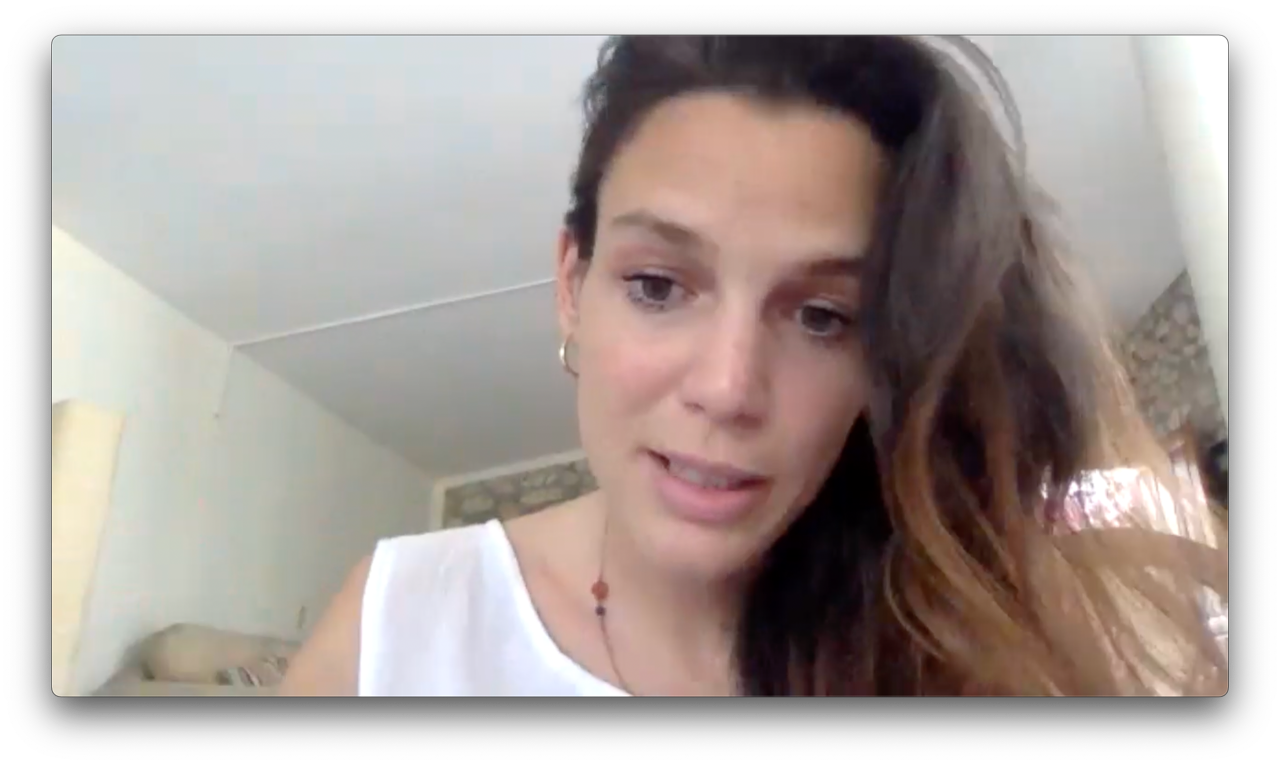
Doctors of the World Switzerland in Haiti: Excerpt of an Interview with Irene Cesati, Country General Coordinator
Jean Max Charles, 2020-2021 Rodman C. Rockefeller Centennial Fellow
My project focuses on the role of non-governmental organizations (NGOs) in reducing Haiti’s public health vulnerabilities. Pursuing this goal, I conducted an interview with Irene Cesati, the Country General Coordinator of Doctors of the World Switzerland. The interview addresses the work of Doctors of the World in Haiti, their response to the COVID-19 pandemic, and some challenges that NGOs are facing in their capabilities to reduce public health vulnerabilities in Haiti.

Irene Cesati and Her Work with Doctors of the World Switzerland in Haiti
Irene Cesati has been working as the Country General Coordinator for Doctors of the World Switzerland in Haiti since 2020. Before joining Doctors of the World, Ms. Cesati was the project manager of Cooperazione Internationale (COOPI), an Italian NGO that came to bring assistance to Haiti in the wake of the 2010 earthquake. As Country General Director, Ms. Cesati oversees the day-to-day activities of the organization; designs and manages projects; and represents Doctors of the World to partners, local and government authorities, and donors.
Doctors of the World Switzerland is a medical humanitarian organization founded in 1993. Its mission involves securing sustainable access to health for vulnerable people in Switzerland and around the world. The organization portrays itself as a politically and religiously independent and impartial health NGO. In Haiti, Doctors of the World Switzerland works in the Western part of the country and focuses on sexual and reproductive health and assisting victims of gender-based violence. With the COVID-19 crisis in 2020, Doctors of the World began to turn its attention to helping mitigate the impact of COVID in Haiti. However, their work in this area was short-lived, as the Haitian government showed very little interest in addressing the COVID crisis, arguing that COVID has not impacted Haiti. During my interview with Ms. Cesati, she addressed the unlikely impact of COVID-19 in Haiti and the challenges facing the country’s public health care system.
Doctors of the World Switzerland and the COVID Response in Haiti
Ms. Cesati mentioned that she considers Doctors of the World’s COVID response in Haiti to be very peculiar. When COVID had just hit, the organization began implementing training on prevention control for health care professionals and providing financial support and logistics to health care institutions to fight COVID. However, in July 2020, the Haitian government signaled that COVID had not impacted Haiti, and as a result, the donor organizations withdrew their funds and redirected them elsewhere. Indeed, Ms. Cesati points out that it is widely believed that COVID has not impacted Haiti. However, according to Ms. Cesati, this belief is not proven: “It is difficult to have a good knowledge of the real impact of COVID in Haiti because there was no testing done” says Ms. Cesati. She argues that the rate of COVID deaths was much higher than what the government reported, but that the impact was not seen mainly because of three reasons. Firstly, because of the way deaths are registered in Haiti, Ms. Cesati explains, people may have died of COVID but not be reported as such. She added that in Haiti, people are not even registered at birth, so their deaths are also unregistered.
Secondly is the youthfulness and already low life expectancy of the Haitian population. According to the World Bank[1] statistics, the life expectancy in Haiti is 63.66 years. Ms. Cesati notes that due to the youthfulness of the population, it may happen that many have the disease but are asymptomatic, as age is a major comorbidity in cases of COVID.
The third reason is the popular belief of the Haitian people regarding the climate (she acknowledges this is anecdotal, not evidence-based). Haiti is a very hot country, so people believe that the climate and the sun protect them against COVID, thus leading the country to have a lower infection rate. But this argument cannot stand, says Ms. Cesati. She recalls other tropical countries of the world that are dealing with high COVID-19 cases and fatalities. For example, she mentioned Brazil, a very tropical country that has been severely impacted by COVID-19. As of April 2021, the total number of COVID-19 related deaths in Brazil has surpassed 375,000, which made Brazil the second most COVID-19 impacted country regarding deaths at the time of the interview. Irrespective of the impact of COVID-19 in Haiti, Ms. Cesati observes that the public health system in Haiti is extremely vulnerable and NGOs are facing many challenges when it comes to addressing that.
Public Health Challenges and the Vulnerability of a System
The public health system in Haiti is extremely vulnerable. During our interview, Ms. Cesati explained the reasons behind this vulnerability, while also addressing the challenges that the health system in Haiti is facing. She recounts at least two underlying reasons for the vulnerability of the health system in Haiti.
Lack of Funding
According to Ms. Cesati, health care in Haiti is not funded by the government. Indeed, data shows that about 80% of health care services are delivered by NGOs. The government invests very little in the health system, which renders access to health services in Haiti only to people who have the means. Recent figures have shown that income inequality is very severe in Haiti. 64% of the income of the country is earned by the richest 20%, while 6.3 million Haitians out of a total of 10.4 million cannot even cover their basic needs, including basic health care access (Hintzen 2018, Singh & Barton-Dock, 2015).
Lack of Healthcare Professionals
Ms. Cesati stresses that Haiti has a lack of health care professionals, primarily the result of inadequate funding for education. According to Ms. Cesati, for the health system to function efficiently, “it needs professionals, equipment, and people who are able to manage the equipment and electricity.” The latter is rare in Haiti, a place where electricity is out for days at a time. When people do have electricity, it is typically only for a few hours. This condition fundamentally affects the health care and educational institutions and makes it difficult to function. Nevertheless, Cesati observes that despite the very important role that NGOs are playing in supporting the health care system in Haiti, there are possibilities for self-criticism that could improve the situation.
Accountability and Self-reflexivity
“I can be somehow critical of the system despite being part of it,” says Ms. Cesati. She points out at least two factors that explain why NGOs in Haiti fall short in strengthening the health care system in Haiti. The first reason relates to funding. She considers NGOs in Haiti to be underfunded. She stresses that “there are few resources and many actors who want those resources.” Compared to other developing world countries with an intense presence of NGOs, Haiti receives relatively less funding than those countries. But the problem is even more than how much funding Haiti receives, implies Ms. Cesati. The problem is mostly the competition for funding. According to Ms. Cesati, “it is frequent to have competition between NGOs.”
The second factor pertains to a lack of coordination between NGOs on the ground. Ms. Cesati remarks that because of these competing tendencies, NGOs don’t share data with each other, which results in a lack of coordination between organizations. Without data it is difficult to know the problems and how to address them, she adds. The problem of coordination is not limited to NGOs; it is also symptomatic of the situation between donors. NGOs in Haiti are largely funded by big donors such as USAID, the UN, and ECHO. The coordination between the donors and the NGOs is also severely lacking, which affects the efficacy of NGOs in providing aid. It is worth highlighting as well that most NGOs in Haiti are delivering humanitarian and emergency assistance, but it is unlikely that those forms of assistance will have a long-term impact in Haiti.
In conclusion, Ms. Cesati addresses the important role of Doctors of the World Switzerland in supporting the public health system in Haiti and the challenges that NGOs are facing when it comes to reducing the vulnerability of public health system in Haiti. To strengthen the health system in Haiti, Ms. Cesati advocates on the one hand for better coordination between NGOs and all the different actors on the ground, and on the other hand for the Haitian government to invest more in the public health system. But Ms. Cesati sees that as the most difficult part because the government is riddled with corruption; when the government receives development funds, the funds often disappear. In the absence of an effective central government, NGOs need to work directly with local leaders and credible local organizations in ways that can produce long-term results and build resilience into their projects and programs. If this is not done, the public healthcare system in Haiti will not be able to withstand future chocs and break the cycle of unending need for relief.
Bibliography
Hintzen, Percy (2019). Precarity and the HIV/AIDS Pandemic in the Caribbean: Structural Stigma, Constitutionality, Legality in Development Practice. Global Public Health.
Singh, R. & Barton-Dock, M. (2015). Haiti: Toward a New Narrative. Washington, DC: World Bank Group.
[1] https://data.worldbank.org/indicator/SP.DYN.LE00.IN?locations=HT